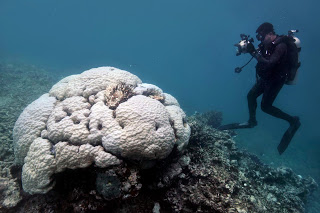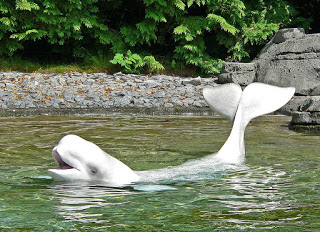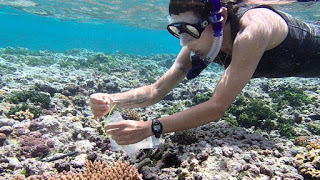1. New York Times: Great Barrier Reef – Huge Sections Are Dead
Scientists have found that hundreds of miles of the northern portion of the Great Barrier Reef are now dead, with southern portions currently bleaching. This level of destruction to the Great Barrier Reef was not expected for at least another thirty years. This phenomenon has been attributed to accelerated climate change.
The Great Barrier Reef is a World Heritage site which by definition is: a site of “outstanding universal value” designated by UNESCO so that future generations may enjoy them as we do now.
2. Endangered Giant Devil Rays Killed
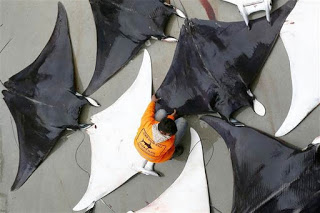 Thirty giant devil rays were caught in Turkish waters for sale in Greece. This was in blatant violation of the General Fisheries Commission for the Mediterranean (GFCM), which bans the landing and selling of certain shark and ray species. These species are listed on Appendix I of the Convention on International Trade in Endangered Species (CITES) a conference diligently supported by Sea Save Foundation. They are also protected under the protocol of the Barcelona Convention, and under Appendix I of the Convention of Migratory Species (CMS).
Thirty giant devil rays were caught in Turkish waters for sale in Greece. This was in blatant violation of the General Fisheries Commission for the Mediterranean (GFCM), which bans the landing and selling of certain shark and ray species. These species are listed on Appendix I of the Convention on International Trade in Endangered Species (CITES) a conference diligently supported by Sea Save Foundation. They are also protected under the protocol of the Barcelona Convention, and under Appendix I of the Convention of Migratory Species (CMS).
3. Cruise Ship Damages Coral Reef Site in Indonesia
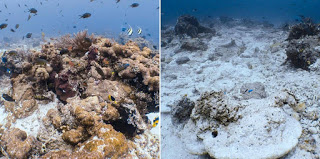 A Raja Ampat coral reef was rammed and damaged by a cruise ship sailing under the Britsh flag.
A Raja Ampat coral reef was rammed and damaged by a cruise ship sailing under the Britsh flag.The ship “damaged approximately 1,600 square meters of coral at a diving site known as Crossover Reef.” The government hopes to be compensated $800-1200 per square meter for the damage the ship caused, but the reef will take hundreds of years to recover.
———————————————–
4. Vancouver Park Board Votes to Ban Captive Cetaceans
In a unanimous vote, the Vancouver Park Board banned captive cetaceans at the Vancouver Aquarium. Last November two beluga whales died at the center.
The Aquarium currently houses a harbor porpoise, a Pacific white-sided dolphin, and a false killer whale. Vancouver Aquarium had plans to end cetacean captivity by 2029.
———————————————–
5. Some Corals May Survive Climate Change
The corals in the study may not be immune to all the effects of climate change, but they may be less vulnerable than other corals.
———————————————–
6. SCUBA Diving – No Lasting Behavioral Effects on Reef Sharks
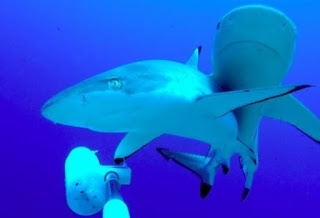 Most sharks swim away from SCUBA divers. Scientists wanted to find out if sharks also avoid sites frequented by divers. They compared a coral reef with no diving or fishing in Palmyra (in the central Pacific Ocean) and one visited by divers at a local research station. They used baited underwater cameras to survey sharks and found no significant differences between the two sites. This might pacify the groups concerned with international shark diving experiences.
Most sharks swim away from SCUBA divers. Scientists wanted to find out if sharks also avoid sites frequented by divers. They compared a coral reef with no diving or fishing in Palmyra (in the central Pacific Ocean) and one visited by divers at a local research station. They used baited underwater cameras to survey sharks and found no significant differences between the two sites. This might pacify the groups concerned with international shark diving experiences.———————————————–
Sea Save Foundation is committed to raising awareness of marine conservation. The Week in Review is a team effort produced by the Sea Save staff to provide a weekly summary of the latest in marine research, policy, and news.

